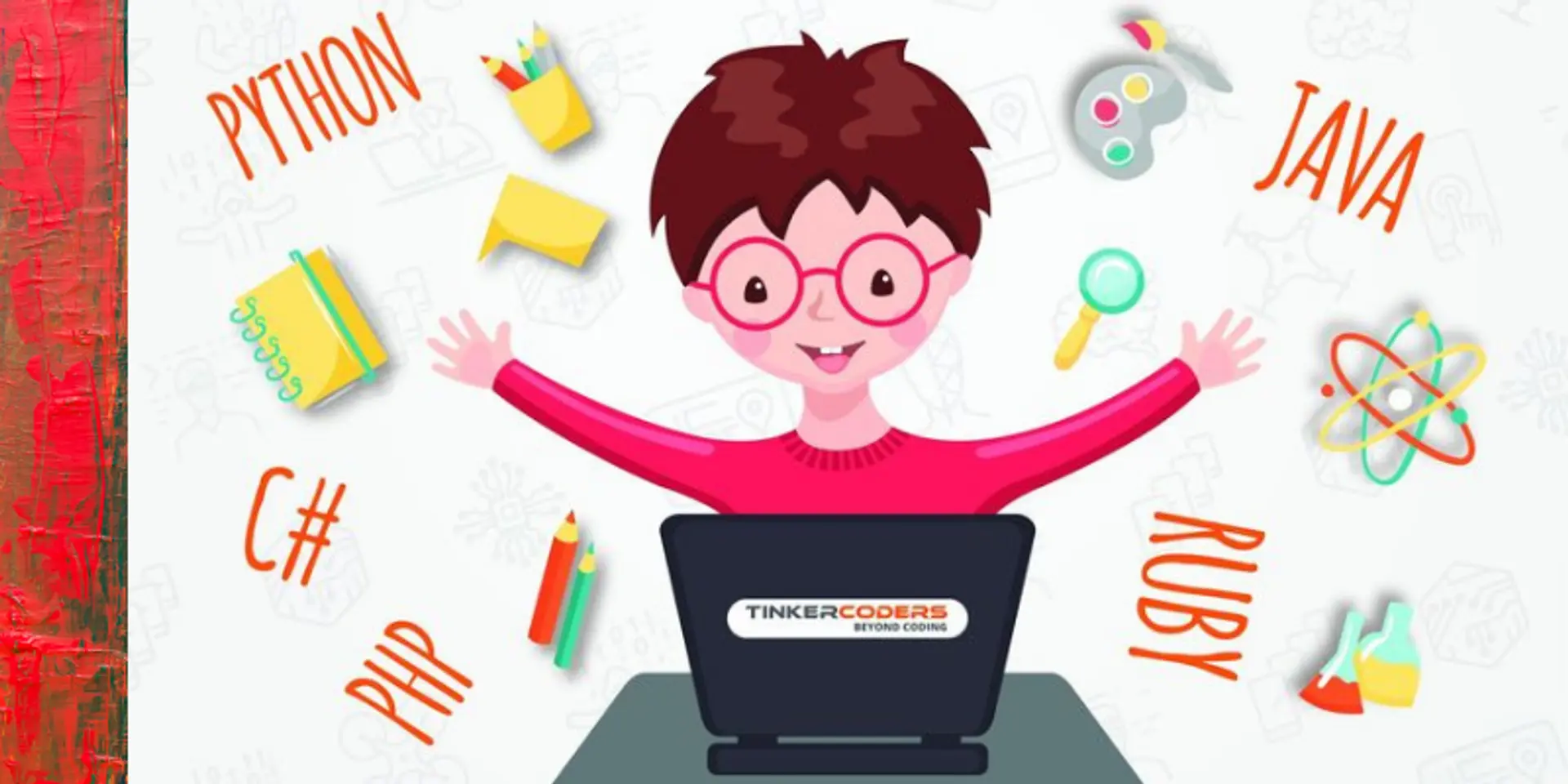This K-12 coding startup enrolled 2.5 lakh students in less than 10 months with affordable courses
Noida-based startup Tinker Coders, which offers affordable programming courses to K-12 students, is riding India’s coding boom and also going global.
Tinker Coders’ website opens with an Elon Musk quote on how he learnt to code young and went on to sell his “first commercial programme” at 12.
While the use of celebrity techies like Musk and others for marketing ‘coding for kids’ platforms has been widely criticised of late, the Tesla founder — now the world’s richest person — is an easy bait for parents rushing to make their kids “future-ready” with new-age skills like coding.
The uptick of courses on Tinker Coders, a platform offering online coding classes to K-12 students, will confirm that the interest and curiosity around the subject may be peaking right now.
In fact, the startup reckons that most young learners need no coercing and are signing up for coding courses willingly.
Founded in March 2020 on the heels of the coronavirus lockdown, Tinker Coders claims to have witnessed “exponential” growth of 200 percent since launch, and has even expanded to several foreign markets.

Anoop Gautam, Founder and CEO, Tinker Coders
What Tinker Coders solves
The Noida-based startup offers Python and AI, block-based coding, app development, 3D designing, and Arduino programming courses to K-12 students aged six to 18.
Anoop Gautam, Founder and CEO, Tinker Coders, tells YourStory,
“Coding is an integral part of literacy now. Earlier ‘literacy’ was defined as the ability to read and write. Now, it is the ability to programme and automate machines. It is mandatory to equip kids with future-ready skills to help them get good jobs.”
He goes on to share that over the next decade, 65 percent of K-12 students would be employed in jobs that have not even been created, as per studies. And that is where coding startups have a huge role to play.

Inforgraphic: YS Design
Anoop explains, “Our aim is to create problem-solvers for their communities. Coding is the most convenient tool to do that. It allows children to use a digital canvas to express themselves, and also enhances academic performance.”
Tinker Coders also looks to further the Indian government’s vision outlined in the National Education Policy (NEP) 2020. The new educational reforms mandate schools to initiate coding classes for students from Class 6 onwards to build analytical skills and design thinking from a young age.
The policy move has provided a significant boost to fledgeling startups in the space, and made coding one of the buzzwords of edtech since mid-2020.
Early user growth and expansion
Tinker Coders claims to have enrolled over 250,000 users and 500 instructors on its learning platform in 10 months. It has registered users in 31 countries, including the US, the UK, Australia, New Zealand, Middle East, Africa, and Southeast Asia.
Students can opt for 1:1 or group sessions, and select courses as per their grade levels. Each course includes live classes, recorded videos, and self-learning modules. Course prices range from Rs 1,999 to Rs 30,000 per month depending on the student’s grade level and chosen mode of learning.
The founder elaborates,
“We’re working aggressively on building channel partnerships across global markets, and are also coming up with newer products and DIY kits for rural areas in India that are more price-sensitive. We’re even working on mobile-friendly courses for places that have poor connectivity, and will be launching our mobile app in a few weeks.”

Photo: Tinker Coders | Twitter
By the end of 2021, Tinker Coders expects to reach 10 million users, onboard 2,000 educators, and cross $10 million in revenues. And by 2025, it plans to expand its operations to 50+ countries, and reach $250 million in revenues.
Last month, the startup raised undisclosed seed funding from its parent company Technologies (a provider of STEM learning solutions in schools).
It will utilise the capital to grow its product offerings, increase market reach, and strike B2B partnerships with schools.
Anoop says, “After NEP 2020 made coding mandatory, schools pan-India are now willing to partner with coding startups to impart 21st-century skills to students. We are signing MoUs almost every day, and also plan to start teacher training modules so that schools can conduct the coding classes themselves.”
Competitive landscape in coding
Coding for kids is estimated to be a $14 billion market in India already.
Primarily, two events from 2020 led to a surge in activity in the segment: the roll out of NEP 2020, and India’s largest edtech startup BYJU’S buying out 18-month-old coding platform WhiteHat Jr for a whopping $300 million.
Shortly after, a plethora of K-12 coding startups gained ground: Tekie, CodeYoung, , , , , CodeMonkey, , LeapLearner, , , among others. Even generalist edtech players like , , (that acquired Codechef in June), and others have now started offering coding classes.

Coding for kids is already a $14 billion market in India
Tinker Coders believes that its parent company’s proven experience with K-12 schools and STEM learning will give it a headstart in this cluttered market.
“Our methodology and track record will play a vital role. That is why we have been able to expand so fast in so many countries. Our self-learning module will become the USP going ahead,” says the founder.
Investor Anurag Gupta (co-founder of STEMROBO) said at the time of funding, “The investment we made is in support of Tinker Coders’ innovative ways of fostering important skills in K-12 students. [The market for] providing early age skill-based knowledge to K-12 kids in regional languages is exponential.”
The startup plans to raise an additional Rs 5-10 crore in two months to ramp up its district-level partnerships and onboard more schools.
Anoop sums up by saying, “Our vision is to build an ecosystem to make coding a crucial tool where kids become smart in academics and also solve real-life problems. We’re expecting huge growth in the coming academic year.”
Edited by Saheli Sen Gupta







